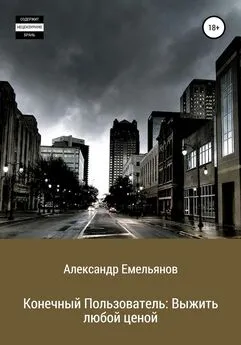Пользователь - o 3b3e7475144cf77c
- Название:o 3b3e7475144cf77c
- Автор:
- Жанр:
- Издательство:неизвестно
- Год:неизвестен
- ISBN:нет данных
- Рейтинг:
- Избранное:Добавить в избранное
-
Отзывы:
-
Ваша оценка:
Пользователь - o 3b3e7475144cf77c краткое содержание
o 3b3e7475144cf77c - читать онлайн бесплатно полную версию (весь текст целиком)
Интервал:
Закладка:
Marceline would caper and prance, and Irma and Beauty and Johannes would raid the
orchestra for a fourth hand at bridge.
The Bessie Budd steamed, or was propelled, to Copenhagen, where the party inspected the
royal palace and attended a performance at the royal theater—the latter being comfortably
within the young mothers' time limit. Lanny studied the sculptures in the Thorvald sen
museum. Many interesting works of man to be seen, but not many of nature in these low, flat
islands and inlets, once the haunt of fishermen and pirates. Having loaded themselves up with
culture, they returned Johannes to Bremerhaven, and then set out behind the Frisian islands,
visiting Norderney, where a hundred years previously an unhappy Jewish poet had written
immortal verses. Sei mir gegrusst, du eiviges Meer!
Back to port, where the owner of the yacht joined them again, bringing with him a large
packet of mail. Included was a letter from Rick to Lanny, as follows:
With regard to your request concerning the Old Bailey, these records are not available, so I had
a search made of the criminal reports in the Times. Under the date of January 13, 1873, appears
an entry numbered 61: "Zacharoff, Zacharia Basilius, agent pledging goods intrusted to him for
sale." In the Times of January 17 appears a column headed "Criminal Court," beginning as
follows: "Zacharia Basilius Zacharoff, 22, was indicted for that he, being an agent intrusted by one
Manuel Hiphentides of Constantinople, merchant, for the purpose of sale with possession,
among other goods, 25 cases of gum and 169 sacks of gall of the value together of £ 1000, did
unlawfully and without any authority from his principal, for his own use make a deposit of the
said goods as and by way of pledge."
Rick's letter gave a summary of the entire account, including the statement: "Subsequently,
by advice of his counsel, the prisoner withdrew his plea of 'Not Guilty' and entered a plea of
'Guilty.'" Rick added: "This is interesting, and I am wondering what use you intend making
of it. Let me add: Why don't your spirits give you things like this? If they would do so, I would
begin to take them seriously!"
BOOK TWO
A Cloud That's Dragonish
6
Deutschland Erwache!
I
THE autumn storms begin early on the North Sea, and judging from his text the poet Heine
had stayed to witness them. The storm rages and whips the waves, and the waves, foaming with
fury and leaping, tower up, and the white water mountains surge with life, and the little ship
mounts upon them, hasty-diligent, and suddenly plunges down into black wide-gaping abysses
of flood. О sea! Mother of beauty, arise from the foam! Grandmothers of love, spare mine!
But when you are running a floating dairy farm you cannot take chances of your stock's
becoming seasick; you must put them on dry land before the equinoctial season and learn
about storms from the pages of a book. Hansi and Bess had a concert tour, Freddi was going to
apply the economic knowledge he had gained, and Lanny wanted to examine some pictures
which might come on the market. Lanny, his wife, his mother, and her husband were urged to
confer distinction and charm upon an oversized Berlin palace. "What else did I buy it for?"
argued the proprietor.
To Lanny the young wife said privately: "Do you think it is a good thing for us to be
associating with Jews all the time?"
The husband smiled. "You can meet anybody you want in that house. I assure you they will
come."
"Maybe so; but won't they think there must be something wrong with us?"
"I assure you, my dear, they all know exactly what you are worth."
"Lanny, that's a horrid view to take of people!"
"You can save yourself a lot of unhappiness by taking my word about Europe. I have lived here
most of my life." Lanny might have added: "Remember Ettore!" But he rarely permitted himself
to mention the dashing Italian duca with whom she had once fancied herself in love.
"But, Lanny, we have been living off the Robins for nearly five months! Am I never going to
spend any of my own money?"
"If your conscience worries you, give Freddi a good check for his new school. Nothing will
please Johannes more."
"But if he wants that done, why doesn't he do it himself?"
"I think he may be afraid to; it would make too many enemies. But if you do it, he will have
an alibi."
"Is he really that much of a coward, Lanny?"
The young husband chuckled. "Again I tell you, take my word about Europe!"
II
The German-Jewish money-lord had several of his guest-suites opened up, dusted, aired,
and supplied with fresh flowers. He would have had them redecorated if there had been time.
The one assigned to Irma and Lanny had a drawing-room with a piano in it; also a bedroom,
dressing-room, and bath for each. Each dressing-room had a clothes closet which was almost a
room and would hold all the imitations of Paris costumes which the couturiers of Berlin might
persuade Irma to purchase. She didn't have gold bathroom fixtures and Lanny didn't have
silver—one had to go to America for styles such as that; but they had drawings by Boucher and
Fragonard, Watteau and Lancret on their walls, and Lanny knew these were genuine, for he
and Zoltan had purchased them and divided a ten per cent commission. Irma found that
rather embarrassing, but Lanny said: "It was what enabled me to dress properly while I was
courting you!"
Next door to their suite was one for the baby and the dependable Miss Severne. Feathers had
been telegraphed for, and was on hand to take charge of Irma's affairs: writing her letters,
paying her bills, keeping track of her appointments. Johannes had provided an English-
speaking maid, ready to serve her from the moment of her arrival; indeed, he would have
ordered a baby giraffe from the Hagenbeck zoo if he had thought that would have added to her
happiness.
Feathers had only to telephone to the steward's office downstairs and a car would be at the
door in a minute or two. There were theaters, operas, concerts, and cabaret entertainments for
every sort of taste, high or low. The palace was in the fashionable district, convenient to
everything, so the two young mothers had no trouble in keeping their schedules; lying back in
the cushions of a limousine, they had time to recover from any excitement and thus avoid
displeasing the head nurse. Their babies, being so well cared for, rarely cried at night, and,
anyhow, that was the night nurse's affair. In the early morning hours this nurse would steal
into Irma's bedroom, bringing Baby Frances for her first meal, and Irma would suckle her
while still half asleep. Oh, yes, modern science can make life pleasant for those fortunate ones
who have the price! Fond dreamers talk about making it that way for everybody, but the
daughter of a utilities magnate would repeat an ancient question: "Who will do the dirty
work?" She never found out who would, but she knew quite certainly who wouldn't.
Each member of the visiting party had his or her own idea of happiness. Miss Severne
inquired concerning the English church in Berlin, and there she met persons near enough to
her social station so that she could be happy in their company. Mr. Dingle discovered a New
Thought group with a lecturer from America, and thus was able to supply himself with the
magazines he had been missing. It is a fortunate circumstance about Christian Science and
New Thought publications, that dealing with eternal truths they never get out of date. The only
trouble is that, saying the same things, they are apt to become monotonous. Undeterred by
this, Mr. Dingle began escorting Madame to a spiritualist church; they knew only a few words
of the German language, but the spirits were international, and there were always living
persons willing to help two foreigners.
III
The great city of Berlin, capital of the shattered Prussian dream. Triumphal arches, huge
marble statues of Hohenzollern heroes, palaces of old-time princes and new-time money-
lords; sumptuous hotels, banks that were temples of Mammon, department stores filled with
every sort of luxury goods—and wandering about the streets, hiding in stone caves and cellars,
or camping out in tents in vacant spaces, uncounted hordes of hungry, ill-clothed, fear-driven,
and hate-crazed human beings. Out of a population of four million it might be doubted if there
were half a million really contented. There was no street where you could escape the sight of
pinched and haggard faces; none without beggars, in spite of the law; none where a well-
dressed man could avoid the importunities of women and half-grown children, male or female,
seeking to sell their bodies for the price of a meal.
Shut your eyes to these sights and your mind to these thoughts. The city was proud and
splendid, lighted at night like the Great White Way in New York. The shop windows were filled
with displays of elegance, and there were swarms of people gazing, and some buying. Tell
yourself that the stories of distress were exaggerated; that the flesh of boys and girls had been
for sale in Nineveh and Baghdad, and was now for sale in London and New York, though
perhaps they used a bit more Anglo-Saxon hypocrisy. Prostitution has been the curse of great
cities ever since they began; swarms of people come piling into them, lured by the hope of easy
wealth, or driven from the land by economic forces which men have never learned to control.
This was something about which Freddi Robin should have been able to speak, he being now
a duly certified Herr Doktpr in the science of economics. He reported that the great
university had left it still a mystery to students. The proper academic procedure was to
accumulate masses of facts, but to consider explanations only historically. You learned that the
three-stage pattern of primitive economic progress as taught by Friedrich List had been
abandoned after the criticisms of anthropologists, and that Roscher's theory of national
economics as a historical category had been replaced by the new historical school of Schmoller.
It was all right for you to know that in ancient Rome the great estates, the latifundia, had been
worked with slave labor, thus driving independent farmers to the city and herding them into
ramshackle five-story tenements which often burned down. But if in the class you pointed out
that similar tendencies were apparent in Berlin, you would be looked at askance by a professor
whose future depended upon his avoidance of political controversy.
To be sure, they were supposed to enjoy academic freedom in Germany, and you might listen
to a Catholic professor in one lecture hall and to a Socialist in the next; but when it came to
promotions, somebody had to decide, and you could hardly expect the authorities to give
preference to men whose teachings fostered that proletarian discontent which was threatening
to rend the country apart. At any rate, that is the way Freddi Robin reported the situation in the
great University of Berlin.
IV
The Budds arrived a week or so before the national elections in September 1930. The city was
in an uproar, with posters and placards everywhere, hundreds of meetings each night, parades
Читать дальшеИнтервал:
Закладка:




